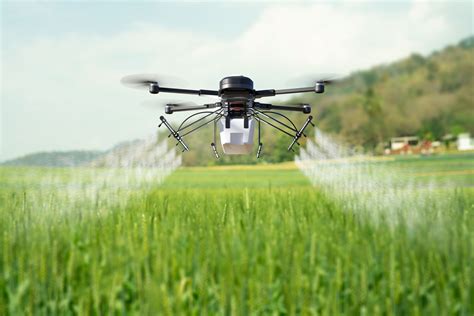The world of agriculture has witnessed a significant transformation in recent years, with the integration of technology playing a vital role in enhancing farming efficiency. One such innovation that has gained considerable attention is the use of drones in farming, specifically in fertilization application. The concept of precise drone fertilizer application is revolutionizing the way farmers approach crop nutrition, and in this article, we will delve into the benefits, working mechanisms, and practical applications of this technology.
The Importance of Fertilizer Application in Farming
Fertilizers are essential for crop growth, as they provide the necessary nutrients for healthy plant development. However, traditional methods of fertilizer application often result in waste, environmental pollution, and reduced crop yields. The overuse of fertilizers can lead to soil degradation, water contamination, and increased greenhouse gas emissions. Therefore, it is crucial to adopt more efficient and sustainable methods of fertilizer application.
How Drone Fertilizer Application Works
Drone fertilizer application involves using unmanned aerial vehicles (UAVs) equipped with specialized equipment to distribute fertilizers over crops. The process typically begins with mapping the farm using GPS and GIS technology to identify areas that require fertilizer application. The drone is then loaded with the required amount of fertilizer, and its precision application system ensures that the fertilizer is applied evenly and accurately.
The drone's precision application system uses a combination of sensors, GPS, and software to determine the optimal fertilizer application rates and patterns. This ensures that the fertilizer is applied exactly where it is needed, reducing waste and environmental impact.
Benefits of Precise Drone Fertilizer Application
The use of drones in fertilizer application offers numerous benefits, including:
- Increased Efficiency: Drones can cover large areas quickly and accurately, reducing the time and labor required for fertilizer application.
- Improved Crop Yields: Precise fertilizer application ensures that crops receive the necessary nutrients, leading to improved yields and reduced waste.
- Environmental Benefits: Reduced fertilizer use and more accurate application result in lower environmental impact and reduced pollution.
- Cost Savings: Drones can reduce the cost of fertilizer application by minimizing waste and optimizing fertilizer use.
Real-World Applications of Drone Fertilizer Application
Drone fertilizer application is being used in various parts of the world, with impressive results. For example:
- Agricultural companies in the United States are using drones to apply fertilizers to corn and soybean crops, resulting in improved yields and reduced environmental impact.
- Farmers in China are using drones to apply fertilizers to rice crops, resulting in increased yields and reduced fertilizer use.
- Researchers in Japan are using drones to study the effects of precision fertilizer application on crop growth and environmental impact.
Challenges and Limitations of Drone Fertilizer Application
While drone fertilizer application offers numerous benefits, there are also challenges and limitations to its adoption. These include:
- Regulatory Frameworks: The use of drones in agriculture is still regulated by various laws and regulations, which can vary by country and region.
- Technical Limitations: Drones require specialized equipment and software to apply fertilizers accurately, which can be expensive and technically challenging to implement.
- Public Acceptance: Some farmers and communities may be hesitant to adopt new technologies, including drones, due to concerns about safety, privacy, and environmental impact.
Future of Drone Fertilizer Application
The future of drone fertilizer application looks promising, with continued advancements in technology and increasing adoption by farmers and agricultural companies. As the technology continues to evolve, we can expect to see:
- Improved Precision: Advances in sensor technology and software will enable drones to apply fertilizers with even greater precision and accuracy.
- Increased Efficiency: Improved battery life and drone design will enable drones to cover larger areas and apply fertilizers more efficiently.
- Broader Adoption: As the benefits of drone fertilizer application become more widely recognized, we can expect to see increased adoption by farmers and agricultural companies around the world.
Gallery of Drone Fertilizer Application






